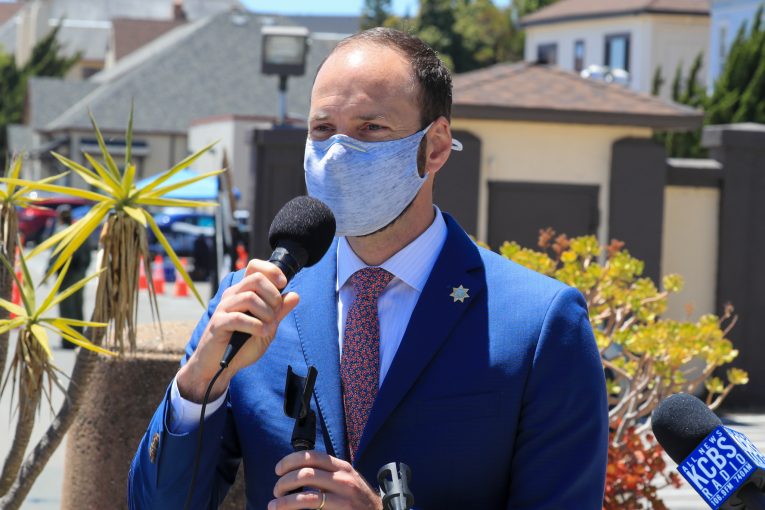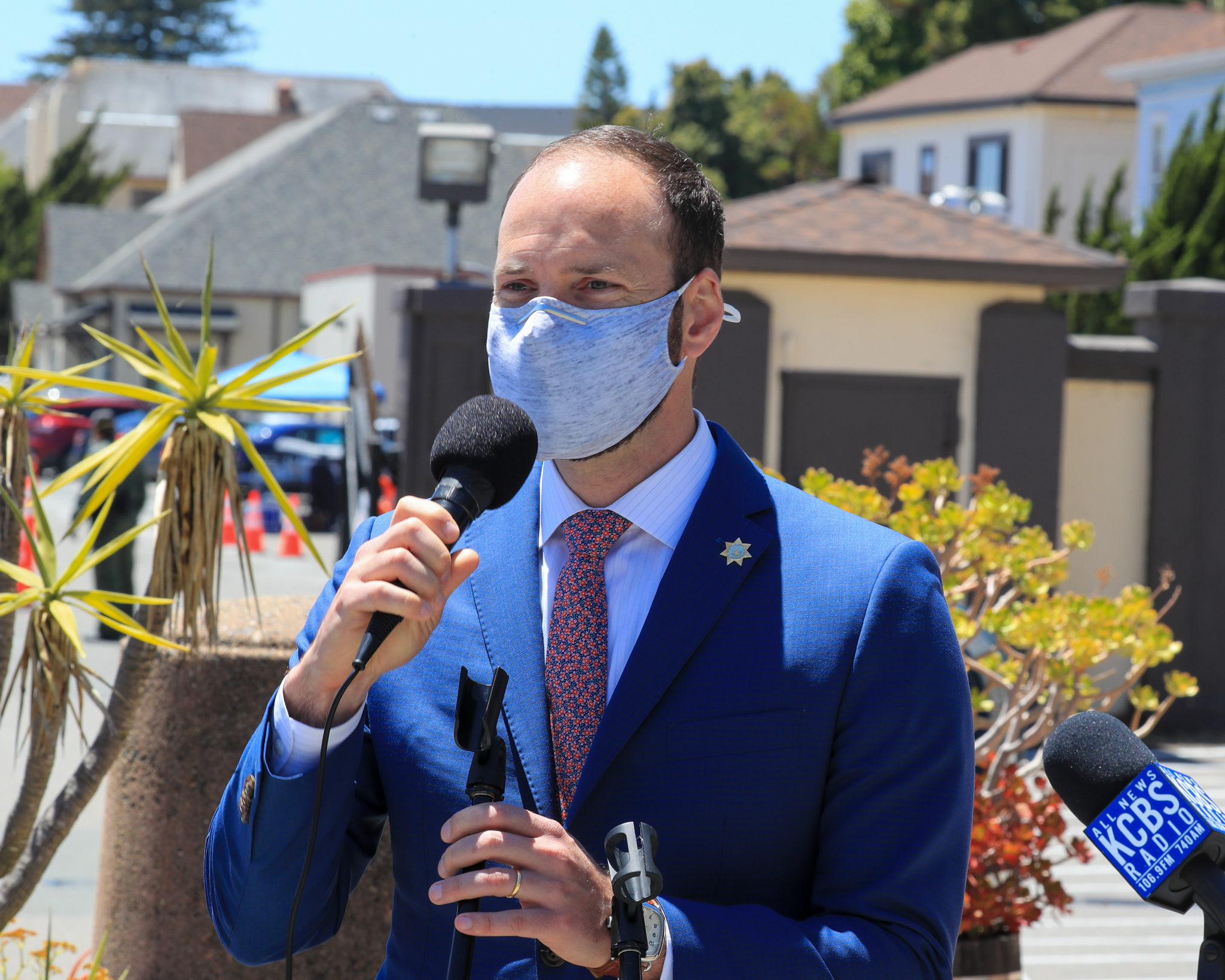

By David M. Greenwald
In a few months, we will see Yolo County potentially step back into the fray on the future of prosecution. A candidate is emerging who will push for progressive reforms. There will be opposition either in the person of current four-time DA Jeff Reisig or, if he does not seek a fifth term, one of his many surrogates.
In previous columns we have highlighted the work of potential replacements for Reisig in his own office—people like Matt DeMoura, who has pushed for a rollback of progressive policies, and Assistance Chief Supervising Attorney Melinda Aiello, who has often been the face of the office on Fox News and elsewhere.
Last fall, an effort to turn back reforms—Prop. 20—was soundly defeated by the voters. That measure would have rolled back Prop. 47.
But in a time of political tumult and rising crime rates, progressive policies are under attack, even as progressive prosecutors coast to coast won unprecedented victories at the polls.
Nationally we have seen this battle play out all year with a huge number of progressive reformers winning—notably in California, Chesa Boudin in 2019 and George Gascón in 2020.
But both of them are under fire.
In San Francisco, it was the hit-and-run deaths of two people caused by Troy McAlister as he was speeding through a stoplight in a stolen car on New Year’s Eve that has galvanized opposition.
The forces of the status quo argue that this could have been avoided—because he was on parole from a robbery conviction and could have been incarcerated for several arrests earlier this year or by the state imprisoning him again for violation of parole.
This wasn’t all on DA Boudin, however. Mission Local reported last week, “In what appears to be a SNAFU, the San Francisco Police Department, in contravention of its own policies, failed to contact the parole office following McAlister’s most recent arrest, on Dec. 20 — despite a written reminder from the DA’s office to do so.”
Nor did the parole office, despite four or five arrests, see “fit to revoke his parole.”
Some are attempting to use this tragedy to push back against progressive policies.
As a pointed editorial in the San Francisco Chronicle notes, “It is faulty because it assumes that we can only avoid tragedies like this one if we routinely take a more aggressive response to cases like McAlister’s, for crimes like attempted auto burglary and carrying burglary tools. But would such a reversal of current approaches serve public safety overall? The answer, for those who recall our recent history of mass incarceration, is clearly no.”
The Chronicle points out: “What happened on New Year’s Eve is a terrible tragedy. But we cannot forget that even when this state was at its highest levels of incarceration, tragedies still occurred. We cannot revert to thinking that the solution to any problem is more incarceration, especially for property crimes and through the broad use of three strikes, when those policies do not make us safer.”
As I like to point out, we have a criminal justice system that fails all the time. It puts people in prison for long periods of time and then releases them without the tools to avoid committing new crimes. The result is a high recidivism rate and people who are incarcerated well past the point at which they are dangerous—but any time something bad happens when we start to make the system more equitable, we get hit by a tragic outlier that sets us back by a few decades.
Indeed, what people forget is that, even under our draconian system at its worst, the vast majority of people put into the system will be released at some point. The failure of the system is that, when they are released, they are provided little support and therefore many, if not most, will reoffend. That is a fundamental failure that has little to do with the progressive policies of Chesa Boudin or others.
As John Jay Professor Baz Dreisinger pointed out her study of prisons across the world, “Incarceration Nations,” the problem is really lack of support.
“Surely the country that locked you up will help you readjust after you’ve paid your debt?” she asked rhetorically. The answer is no. No welfare, food stamps, or public housing. Eighty percent of those formerly incarcerated in US prisons have no access to health insurance and are ineligible for Medicaid. “Employers don’t want to hire you; in a sample of four large urban labor markets, 40 percent openly admitted they wouldn’t hire someone with a criminal record.”
At some point, 95 percent of the people who are incarcerated are returned to the community. But we have failed to address ways for them to turn their lives around—indeed, with all of the post-conviction restrictions, we’ve made it harder. Then we blame the reformers when the system, that never worked, fails to work yet again.
In the meantime, in Los Angeles, George Gascón just got elected on a host of reforms. But the Deputy DAs don’t like it and are attacking his discretion. The Deputy DAs Association of Los Angeles has filed for a preliminary injunction and, as we reported yesterday, the California District Attorneys Association, with Jeff Reisig as the Vice President, filed an amicus brief in support.
Now 65 current and former reform-minded prosecutors are pushing back with an amicus of their own.
As they point out, “The Los Angeles community elected him, over opposition by the ADDA, to carry out these promises and bring a new vision to the Los Angeles criminal justice system,” they write.
The lawsuit opposing reforms seeks to bar Gascón from implementing new policies that end harsh charging and sentencing enhancements that have fueled mass incarceration and devastated communities.
As the reform-minded prosecutors point out, “Ultimately there is no research that shows sentencing enhancements improve public safety, but there is evidence that excessive sentences increase recidivism and therefore create more victims in the future.”
They continue: “We are deeply troubled by the attempt by the Association of Deputy District Attorneys for Los Angeles County to usurp the power of the elected district attorney and use the courts to override the lawful, discretionary policy decisions of an official, chosen by the voters of Los Angeles, to transform the criminal justice system in that community.”
As former LA County DA Gil Garcetti notes, “Historically, prosecutorial discretion has too often been used to impose harsher penalties that have particularly impacted people of color and harmed communities, not made them safer.
“DA Gascón made clear – and voters embraced – his intent to reverse that practice,” he said. “While some prosecutors are having difficulty accepting these changes, there is only one elected official in the DA’s Office.”
Make no mistake, this is a fight for the future of progressive prosecution. But while the stakes are high, remember these battles have gone on in places like St. Louis, Virginia, Florida and, of course, in Pennsylvania.
It was just last summer when Virginia Prosecutor Parisa Dehghani-Tafti was threatened with having her power stripped for advocating reform.
Former and current prosecutors pushed back, calling the move “highly unprecedented” and “sweeping” and questioned the constitutionality of the move.
“The Circuit Court’s order in this case is the latest example of an unsettling trend nationwide of interference with elected prosecutors’ efforts to promote evidence-based approaches that move away from past decades of ‘tough on crime’ punitive policies,” said Miriam Krinsky, Executive Director of Fair and Just Prosecution.
Krinsky added, “Voters overwhelmingly elected CA Dehghani-Tafti to reform the criminal legal system. While courts did not previously interfere with prosecutorial discretion when it was used to fuel mass incarceration, the circuit court’s attempt to undermine a new vision of justice, that promotes safer and healthier communities, runs counter to decades of well-settled prosecutorial autonomy.”
The same could be said for Gascón, who defeated the incumbent DA Jackie Lacey in November. No sooner had he taken office, he began to deliver on his promises but he encountered pushback.
Critics of progressive policies will point to rising crime rates and especially increasing numbers of shootings—but, as we pointed out last summer, those increases have occurred across the board in areas that have seen reform efforts but also in areas that have not, and that should lead us to conclude that the progressive policies are not the primary driver.
—David M. Greenwald reporting
To sign up for our new newsletter – Everyday Injustice – https://tinyurl.com/yyultcf9
Support our work – to become a sustaining at $5 – $10- $25 per month hit the link:

An oxymoron?
Being locked-up is not “paying your debt”. (I never understood why it was framed this way, since it increases your “debt”.)
Reimbursing victims and paying for the cost of your incarceration would be closer to “paying your debt”.